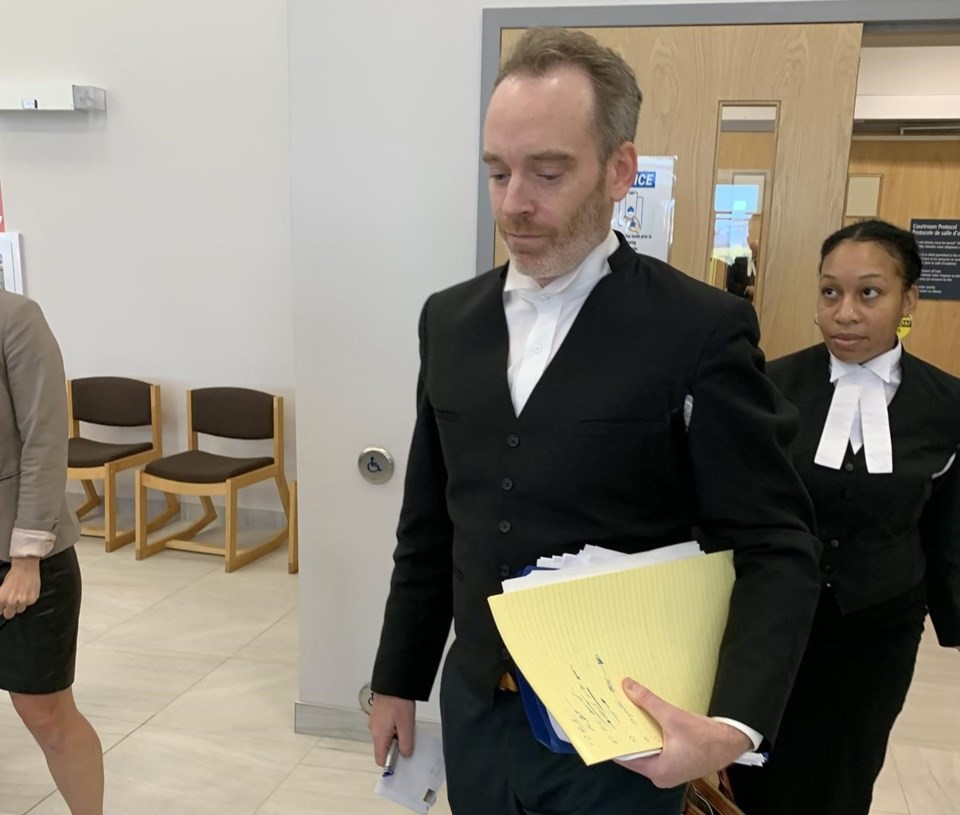HALIFAX — A jury has found a Halifax man not guilty of murdering a pizza delivery worker in a retrial that saw two key witnesses testify they lied when the accused faced his first trial in 2018.
Randy Riley nodded and smiled to his family and friends Thursday as they gasped and hugged one another upon hearing he'd been acquitted in the killing of Chad Smith, who died from a single shotgun blast on Oct. 23, 2010. Riley was also found not guilty on a charge of illegally possessing a firearm.
For Riley, it has been a long journey to gain his freedom. He was released on bail in March 2021 as he awaited his second trial, after being incarcerated seven years and eight months following his 2013 arrest.
Riley was originally convicted of second-degree murder in 2018, but the Supreme Court of Canada ordered a new trial in 2020 after a series of appeals. The country's highest court found the trial judge erred in cautioning the jurors against considering the sworn testimony of a witness, Nathan Johnson, who said Riley wasn't involved in the killing.
Johnson was convicted in a separate trial in 2015 of first-degree murder in the case, but the Crown had persisted in pursuing a theory in this trial that it was Riley who carried out the shooting.
The current trial heard evidence that Johnson and Riley were together that night and being driven by Riley's close friend, Paul Smith — who was not related to the victim.
However, the judge cautioned jurors against drawing on Smith's 2018 testimony, emphasizing that in the current trial he had told the court a "large part" of his original testimony was false.
Smith had testified in 2018 that Riley told him that he had been in an earlier fight with the victim, that he knew the victim worked at a pizzeria and that "he was just going to deal with it."
In this trial, Smith testified none of those statements were true. He also recanted his 2018 testimony that on the night of the killing he had seen Riley with a long object in his pants, which prosecutors argued was a gun.
The prosecution argued in its closing statement Tuesday that some of the 2018 testimony from Smith could still be interpreted as "pieces of a puzzle,'' especially when supported by cellphone records that confirmed the location of some events in Smith's original story.
However, the jury took just four hours of deliberations to reject this theory and accept defence lawyer Trevor McGuigan's argument that they could not rely on the recanted evidence from 2018.
McGuigan had also emphasized to jurors that another Crown witness, Kaitlin Fuller, wasn't telling the truth about Riley in the current trial when she testified that he threatened to kill her and her brother when they met the day after Smith was killed.
The judge in the case, Nova Scotia Supreme Court Justice Joshua Arnold, reminded the jury that during Johnson’s trial and during Riley’s first trial, Fuller testified that she had not spoken to Riley after the killing.
He also noted her testimony in the current trial that she had been struggling financially before being readmitted into a witness protection program in 2021. The defence has argued that Fuller — who was Johnson's girlfriend in 2010 — had financial motives to invent her recent story.
The trial heard she wanted to re-enter witness protection after being out of the program for several years, and that since 2010, she has received benefits totalling $634,000 from the program — including $270,000 in the last 15 months since being readmitted.
Defence lawyer, Trevor McGuigan, said outside court that his client was relieved, and he was looking forward to regaining his full freedom.
"It's difficult to say this is justice, given the process that he has gone through in the past 10 years or more, but certainly this outcome in this moment feels like finally there is resolution .... It's been a long road," McGuigan said.
On Thursday, Riley still hadn't been released, as he recently was jailed on charges he breached bail conditions on Oct. 1. His release application will have to wait until Tuesday in provincial court, said McGuigan.
The defence lawyer noted that both key witnesses had admitted to giving different versions of events in prior cases when testifying under oath. Asked if prosecutors should have proceeded with the retrial, he replied, "From the defence perspective, 'No, they shouldn't have.'"
The prosecutors involved in the case were unavailable for comment after the verdict.
This report by The Canadian Press was first published Oct. 5, 2023.
Michael Tutton, The Canadian Press




